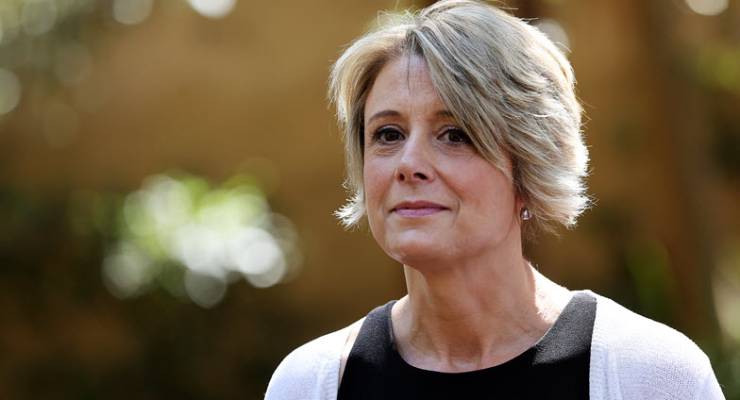
The Turnbull government faces the second of its life-and-death section 44 byelection struggles tomorrow, and the first in which the restitution of its disqualified member is not merely a formality.
Labor’s Kristina Keneally will need a 9.7% swing to win the Sydney northern suburbs seat of Bennelong against Liberal incumbent John Alexander — a big ask, but by no means without precedent.
Much bigger swings sounded the death knell for Labor governments in the Bass and Canberra byelections in 1975 and 1995, and a swing of precisely the size needed tomorrow gave Labor an unprecedented win in the Brisbane seat of Ryan in February 2001 (inspiring many a premature obituary for the Howard government at the time).
Both sides have been taking the contest with due seriousness, with the Liberals aiming throughout the campaign at Keneally’s past associations with disgraced Labor powerbrokers Eddie Obeid and Joe Tripodi, and Labor seeking to turn the Sam Dastyari episode to its advantage by accusing the Liberals of “China-phobia”.
The sensitivity of the latter issue relates to Bennelong’s status as the top electorate in the country for persons having Chinese ancestry, with over a quarter of its residents identified as such in the 2016 census.
[Bennelong could be one of the most significant byelections in Australian history]
Bennelong’s demographic transformation occurred during the three decades in which the seat was held by John Howard, who developed a complex relationship with his new breed of constituent.
On the one hand, the new voters from China, Hong Kong and South Korea were greatly more affluent and, relatedly, politically conservative than was typically the case for migrant communities.
However, certain of Howard’s manoeuvres as opposition leader and prime minister — notably his questioning of Asian immigration levels in 1988, and hesitation in tackling Pauline Hanson head on after the 1996 election — were all too clearly made with national rather than local considerations in mind.
Nor did the Howard government’s agenda always sit well with the electorate’s educated and moderately prosperous white voters, many of whom reacted badly to its military endeavours, hard line on asylum seekers and refusal to sign the Kyoto protocol on greenhouse gas emissions.
At the 2004 election, a year after the invasion of Iraq, Howard suffered a solid swing in Bennelong against the national trend, leaving him with an insufficient buffer against the tide to Labor in 2007.
[Turnbull is showing his stress, and Bennelong is watching]
Given Howard’s stature, it’s remarkable how much better the Liberals have done in his absence. John Alexander recovered the seat at the first opportunity in 2010, then consolidated with consecutive swings in 2013 and 2016, the latter result being the Liberals’ strongest in the seat in two decades.
The view on both sides of the fence is that Alexander’s buffer should be enough to withstand what looks like being a fairly solid swing.
The latest published polls offer a mixed picture: ReachTEL squared with the conventional wisdom in having Alexander 53-47 ahead, but Newspoll set the cat among the pigeons with a result of 50-50 (although its sample was a very modest 529).
However, it must be remembered that pollsters who have performed to a consistently high standard in tracking national and statewide voting intention, have a much less impressive record when narrowing it down to specific electorates.
This task is made particularly difficult at a high-profile byelection, when every potential respondent gets contacted on multiple occasions, causing response rates to plummet.
Indeed, it may well be that the parties’ own polling is encountering the same difficulty, and that players and pundits alike stand to be surprised by the result that unfolds tomorrow night – just as they were by Barnaby Joyce’s landslide in New England, and the Victorian Greens’ boil-over in Northcote last month.








I hope the Bennelong voters are keenly aware of their opportunity to practically end this duplicitous shambles of an LNP government – they should see it as their national duty to do so.
Would so savvy a cohort as the Chinese see advantage in having their Member one of the ruling side, in the very new future?
You have to ask why players and pundits were surprised at New England and Northcote results.
I wasn’t, Barnaby had no competition and and Clare Burns was really over egging in trying to appeal to greens. Too many of us have been lectured to by vegans. 🙂 And only wearing second hand clothes?
Too true. What “pundit” worth their salt was surprised by the dead rubber (Windsorless) New England result?
Too chicken-shit scared to break from the flock?
Thank doG that Howard had 9/11, Tampa and ‘Children Overboard’ to milk, back in 2001?
Well this lot have Manus, China and robodebt, all good-feel resentments for the good burgher Mr & Mrs Pooter.
Despite the SSM result, if Abbottrocious was candidate he’d still win Warringah, demographic be damned.
I recall that Sidonis had a much closer commercial contact with Obeid and Sydney Water
At least you can recall. Sinodinos can’t.